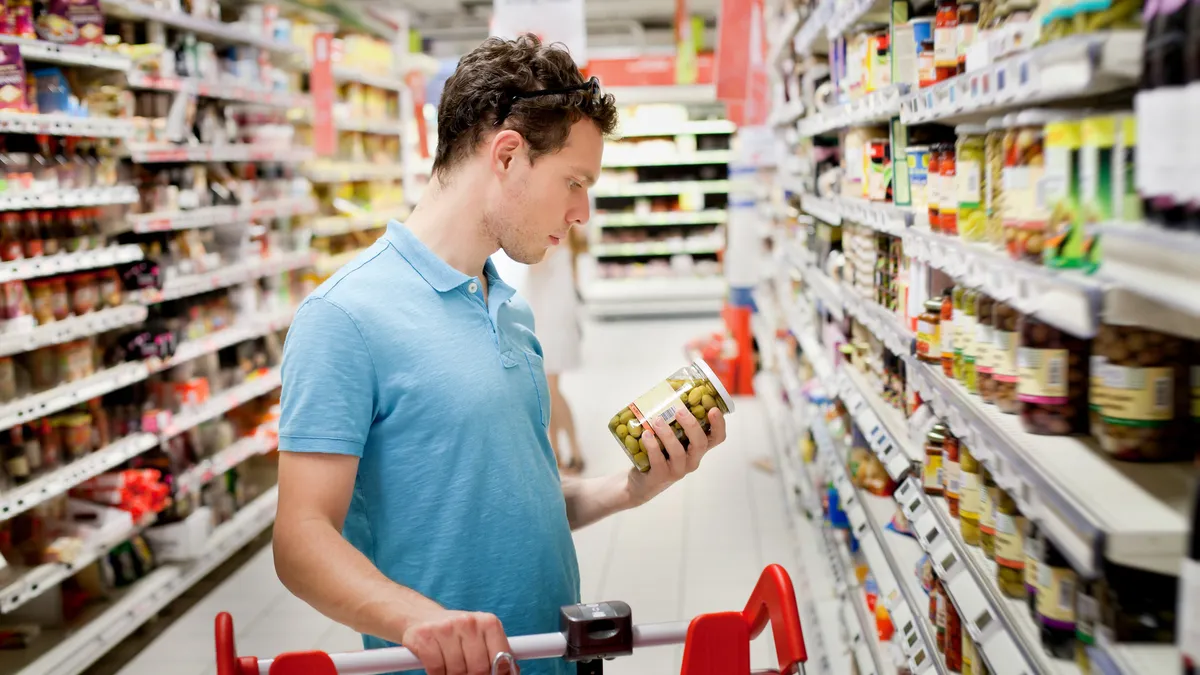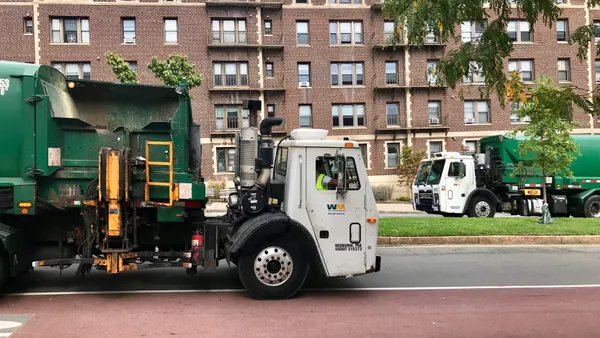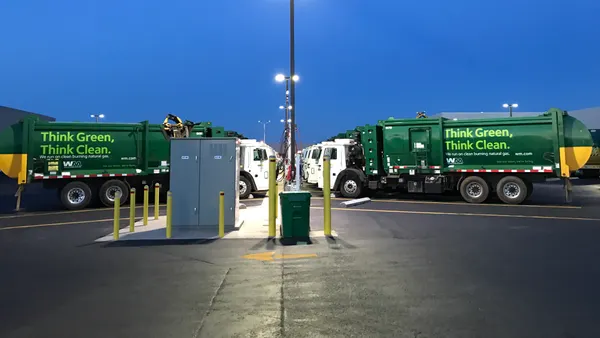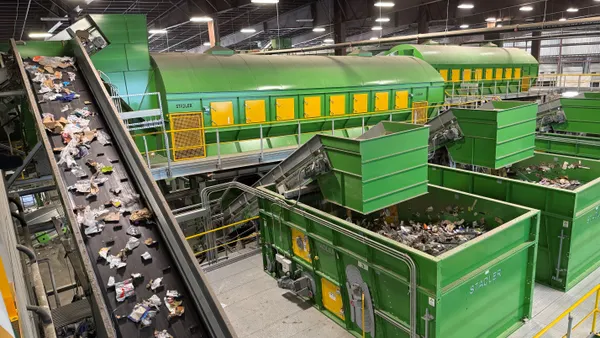Dive Brief:
- A survey conducted for the Carton Council of North America found that 91% of the nearly 2,500 respondents from around the U.S. believe it is the role of food and beverage manufacturers to promote recycling of their packages — a 5% increase from the number of respondents who held this opinion in a 2013 study, according to Recycling Today.
- Other key data is 77% of participants, including those who are offered curbside recycling services, consider the environmental impact of their purchases, and 67% reported that they would only assume a package was recyclable if it had a symbol or language spelling this out.
- Results were gathered online last December by Research+Data Insights, who made adjustments for known demographic discrepancies.
Dive Insight:
Most consumers want to recycle, but clear communication on what can be tossed in the bin is key in order to encourage participation. And consumers depend largely on labels for that direction.
The newest survey further illustrates this point, as 57% of respondents said they look at the package first for recycling information. They look at their community’s website second, and at the manufacturer's website third.
But the findings also speak to the reality that pumping recycling is a job that involves multiple players.
"The survey results reiterate what we have long believed: that we must work together — the packaging manufacturers, brands, and everyone in between — to ensure we are talking to consumers in a clear way about the recyclability of our products," said Jason Pelz, vice president of recycling projects for the Carton Council of North America, as reported in Recycling Today.
Wendy Behr, senior vice president of research and development and sustainability at WhiteWave Foods echoed that thought.
"This research emphasizes the important role that food and beverage companies have to play," she said. "At WhiteWave Foods, we recognize that the opportunity to promote carton recycling starts on the packaging. That’s why it’s important to us that all WhiteWave packaging has consistent messaging so consumers are educated to responsibly dispose of a product after it is consumed."













